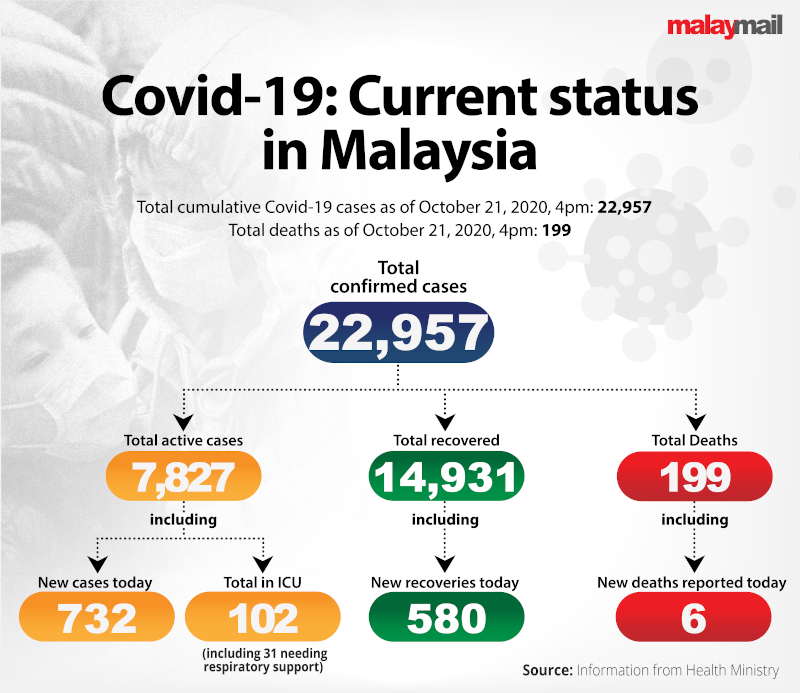KOTA KINABALU, Oct 21 — The number of Covid-19 cases in Sabah is expected to rise exponentially in the next few days after the return of laboratory test results of all prisoners and staff of the Kepayan Prison quarters.
Sabah Covid-19 spokesman Datuk Seri Masidi Manjun said that the state is bracing for the spike, adding that indications point towards a 60 per cent Covid-19 positive rate.
“I’m told that the total number of prisoners we have there is 2,700 people, so if all of them are infected, the number of cases will see a big jump for Kota Kinabalu,” he said in his daily press conference on the coronavirus situation in Sabah today.
“This is why I’m mentioning it now, so people will understand if this is the case later,” he added.
Sabah remains the state with the highest number of infections. It recorded a dip in new Covid-19 cases today, 535, compared to yesterday’s 673.
The state capital, Kota Kinabalu has 90 new cases, a reduction from yesterday’s 130.
Sabah’s total cases to date is 9,290, of which 5,513 are still being treated in hospital.
Five new deaths from the coronavirus were recorded in the state as well today.
Masidi, who is also Sabah local government and housing minister, said that state health authorities were giving their full attention on the prison cluster by treating all of the infected people and running contact tracing on their staff as well.
He said the enhanced movement control order on the prison is also expected to curb the spread of the virus somewhat.
“I’ve been assured that all steps are being taken to flatten the curve here,” he said.
Nevertheless, Masidi said cases in Sabah were still high, and although the health authorities believe that the east coast — said to be ground zero for Covid-19 in Sabah — will soon be under control.
“They said that there are signs the number of cases in the east coast is under control. But we are now a bit worried about the prison cluster because the number of people together is quite high,” he said.
On whether the state health department could cope with the numbers Masidi said that the frontliners were stretched to the limit but still coping.
“We are also thankfully getting help from a lot of volunteers,” he said.




















